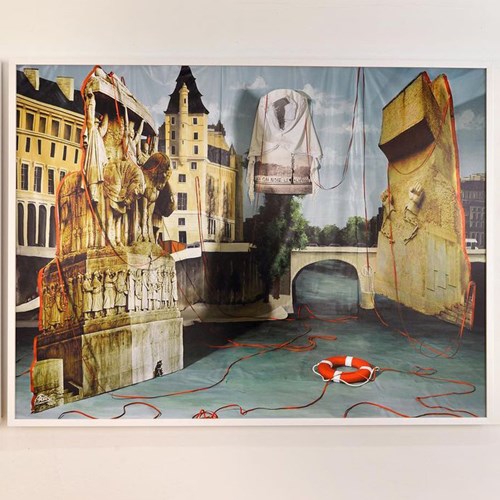The vice of denunciation as an instrument of social control for base motives with irresponsible consequences has always had a tradition in Europe, Germany, Thuringia, Weimar, right up to the present Corona period.
As a communication strategy, it often serves to marginalize individuals, makes society and the individual sick, bears the traits of passion, is an anthropological factor, closely linked to curiosity, rumour, gossip, defamation and treason, punishable and omnipresent at all times.
So we are also endangered, because a special criminal energy like that of a criminal is not required for denunciation - it is tempting for everyone, the transition from the inconspicuous normal citizen to the informer is fluid. ///
An increased need for recognition, an awakened sense of control and an awakened thirst for power tempt us to act in a denunciatory manner, in short a potentially slumbering block warden mentality. Political backgrounds are often not the cause of "common" denunciation, but hidden private motives such as envy, resentment, bitterness, feelings of revenge and jealousy. If you can't exert much influence in any other way, the possibility of getting rid of a competitor or of being able to exercise power over a superior through a simple statement is obviously tempting. The chance, swapping the role of the unnoticed, powerless contemporary for that of an influential person, and shifting from the side of the loser to the side of the winner, is so powerful that ethic and moral considerations are sidelined. Different social environments produce different patterns of denunciatory behavior - from personal favoritism to state security and combinations of both.
Possibly the tendency to denunciation within the population is particularly pronounced in times of diffuse political uncertainty. Their effectiveness also depends on the prevailing norms. The display behavior in a society is a reflection of the respective social conditions.
Sheida Soleimani shows image montages of accusation variants in
(post-)colonial history, where colonial states, among other things,
defend themselves with denunciatory theses of exaggerated claims and
insist that, for example, "transfer" of cultural assets must be seen as
their salvation.
Arefeh Riahi's work includes a letter to a slanderer and sculptural
forms, each exploring the so-called 'hashti' as a space in Persian
architecture, as metaphor and symbol within social (and possibly
defamatory) relations.
Artists

